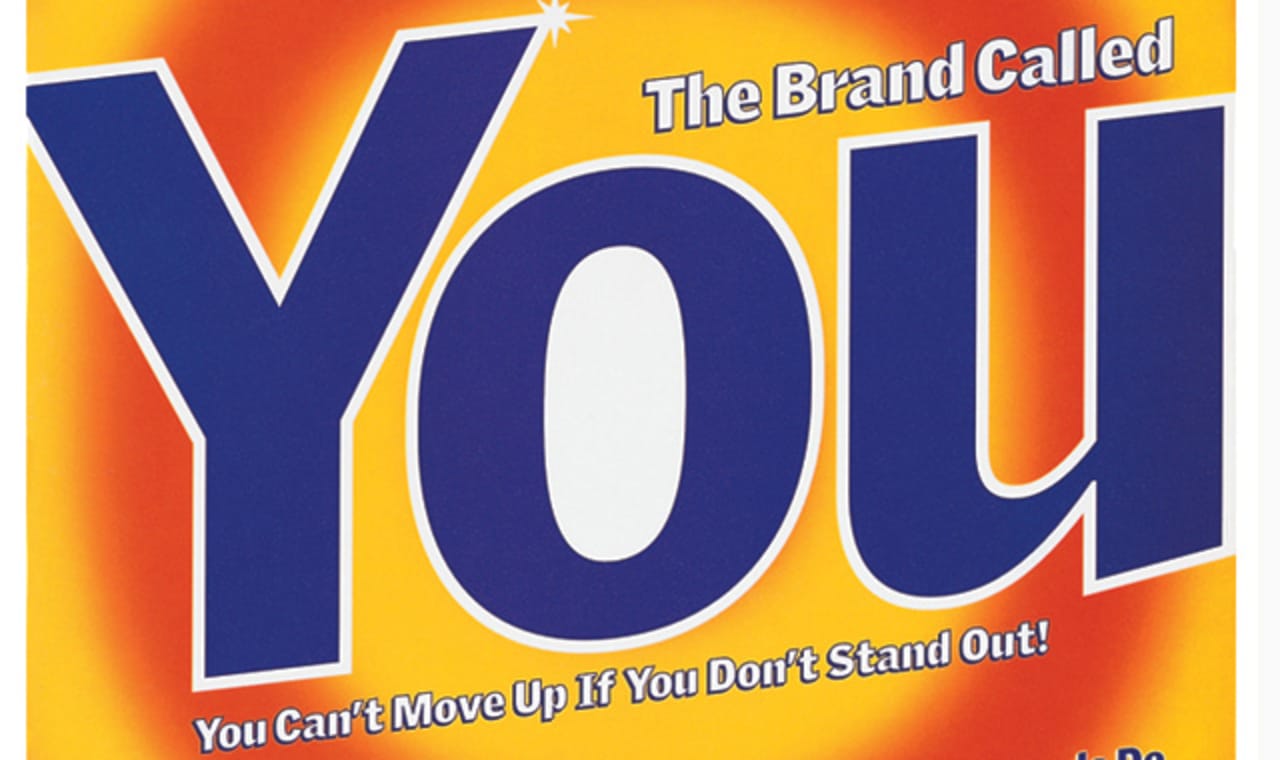
Tom Peters famously wrote about “the brand called you” back in 1997 before everyone had the Internet in their pocket and everyone just took it as a fait accompli that everyone should have a personal brand.
The concept worked great for a long time.
But I think its time for us to revisit the concept of the personal brand in light of the current moment in our economic culture.
Because much of what has counted as personal branding over the last several years has become peacocking and not performance.
At the best, a brand is a mark of consistency, expectation, and quality.
At the worst, a brand is a bullhorn to beat people over the head with bogus claims, ideas, and, all too often, a platform to overwhelm anyone within distance with noise.
Unfortunately, we seem to be caught in a trap where the worst is coming out all too often in our day-to-day existence.
Don’t believe me?
Donald Trump has a personal brand that he developed over the years: one which he really built on the back of the perception of his business acumen and decision making skills that really never caught hold until he had a TV show.
Donald Trump is an easy mark.
But what about some of the other “famous” personal brands that shout out useless aphorisms that seem to really only reinforce how important that their personal brands are…but never really tie into what kind of performance or achievement that these people are responsible for.
I get it. I’ve got a business brand, “The Revenue Architect” that was developed out of my work with clients like American Express, Yellow Tail, and Nike.
In too many instances, that’s the exception, not the norm.
Which leaves most personal brands as nothing more than a bunch of hot air.
But what can we do to change this outside of giving up the ghost entirely?
A few things come to mind:
Focus on impact:
Too many brands are focused on being catchy or being memorable.
That’s all well and good because if you are going to go through some sort of branding exercise, it should have an impact and leave a mark.
At the same time, your brand should also be focused on the impact you create in the world.
How many personal brands actually focus on the outcomes and impact that they create for the people they serve?
Less than you would imagine.
The first point of any business strategy has to focus on value and impact. The same goes for a brand.
Do you want to be hot air or do you want to have impact?
Add specificity:
I hate the term “crush it.”
Because I feel like it is one of those feel good, self-help catch phrases that is used all too often to mimic a deep thought, but which in reality is the worst sort of navel gazing.
If you say, “you have to work hard.”
That means nothing.
Everyone knows that to do anything worthwhile, you have to put in some effort and focus. That’s the barrier of entry.
All too often, hard work becomes a hiding spot for the real hard work of thinking.
If someone said, how can I make my marketing more effective. I wouldn’t just tell them to work harder at marketing.
I would tell them that they needed to focus on their value, their buyers, and putting a message in the spot where their potential buyers would be influenced by it.
I wouldn’t tell them to just throw things against a wall and hope for the best, not in most instances at least.
That’s why specificity is so important.
Just doing something isn’t the most important thing. Doing the right things is.
That’s what specificity gives you, the chance to do the right thing.
Make sure your branding is rooted in performance:
I can talk smack with the best of them, but when it comes to my business and the branding around “The Revenue Architect” that’s all about performance. Here’s a few examples:
- Helped major nonprofit double their online donations from previous year in one quarter.
- Used experiential marketing to help several major beverage companies generate 500%+ growth, on average.
- Ran one of the most successful political direct mail campaigns in history, changing voter sentiment and likelihood over 9% in a month.
Every brand should be aspirational in a way, even if the term can become slightly meaningless in the wrong hands.
But the sad truth is that in most cases, the brands are just coat hangers for a bunch of fuzzy terms, funky ideas, and tenets that have nothing to do with actual performance.
This feeds the bad wrap that personal brands get. They have no attachment to reality.
Don’t fall into that trap.
Even as you are working to evolve your brand and your business, root your brand in performance and things you can talk about with conviction because you did them.
The thing is, I am under no illusion that the era of “personal branding” is going to stop anytime soon. As a society, we have invested too much into the concept to admit that most of the brands that we have created are not living up to their promise.
That said, you don’t have to follow the herd. You can do better by focusing on performance, specificity, and impact.
That’s crushing it.